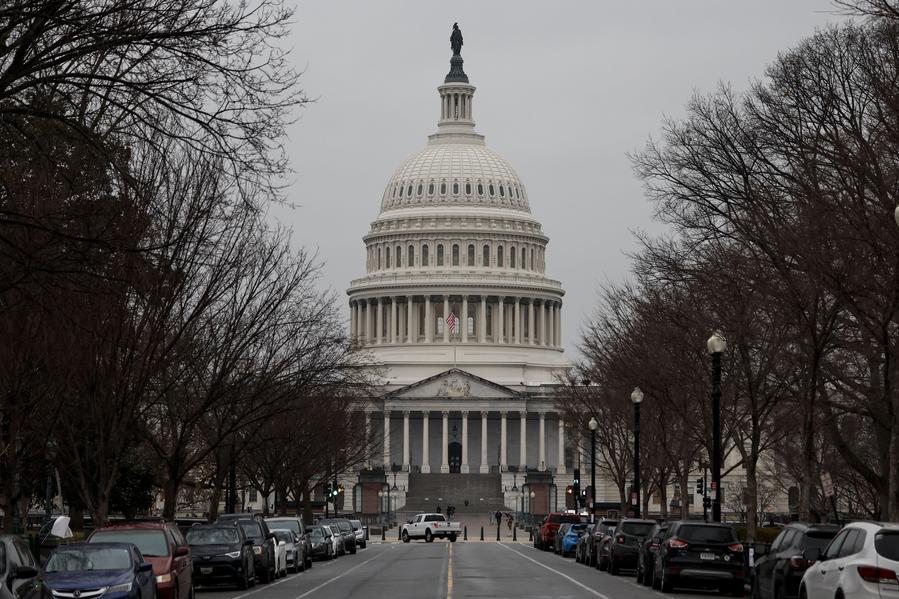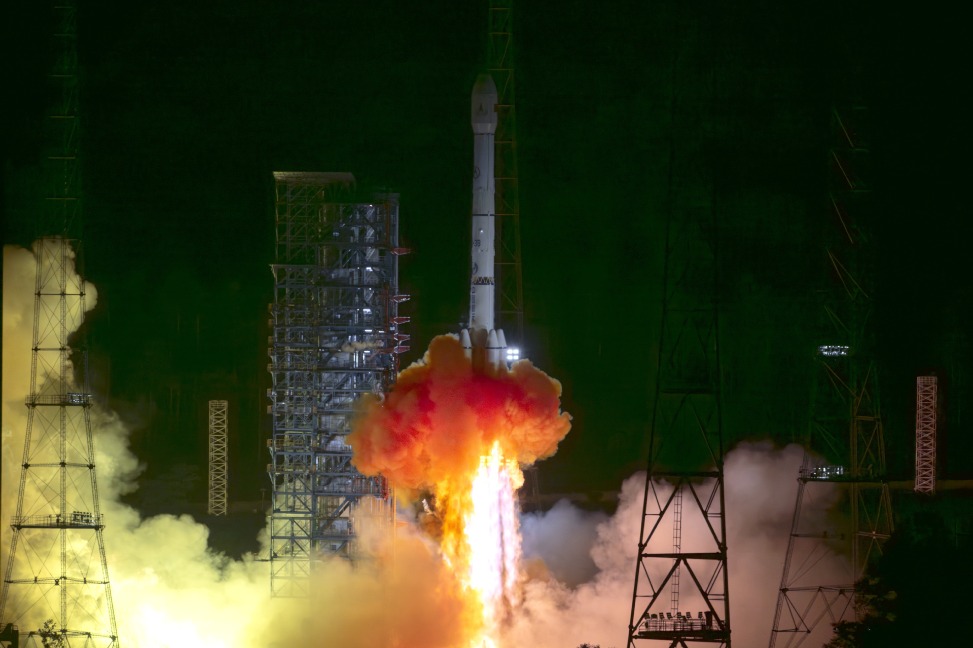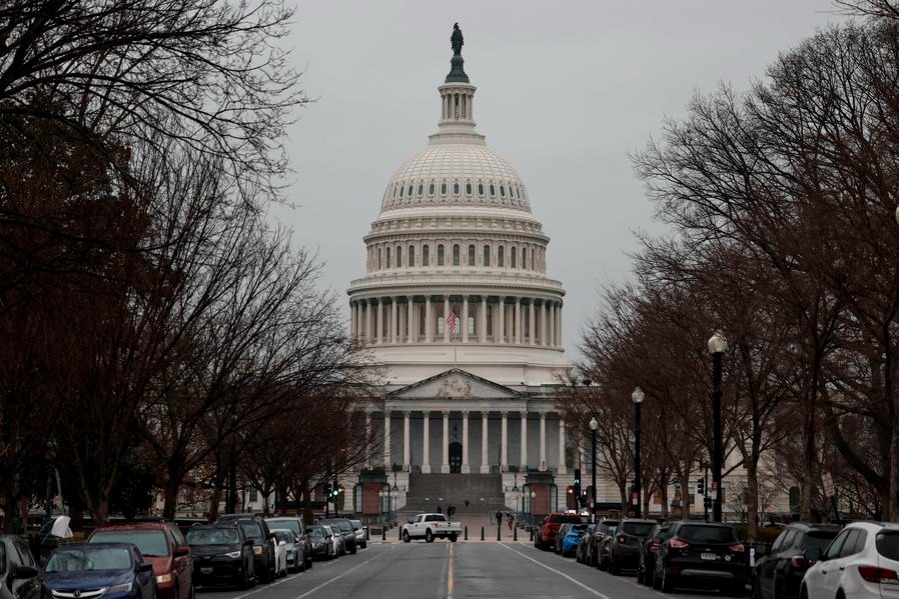Inside the 100 days of turmoil: Ready for a "Post-American era"?


Predictably unpredictable, the new US administration's uncanny 100 days have thrown the world into chaos, receiving a deluge of criticism. The much-touted "golden age" has only resulted in historic volatility in gold prices and tremendous disorder due to policy flip-flops.
Chaos in the first 100 days
Once in office, the White House moved to shut down USAID and the Department of Education, while cutting tens of thousands of federal jobs. DOGE (Department of Government Efficiency), set up to streamline government and eliminate waste, has disrupted the existing administrative framework of the US federal government.
The administration simultaneously launched the largest-ever deportation program against undocumented immigrants, branded as a "revolution of common sense", and dismantled long-standing DEI policies, which exposed the fracturing social cohesion and deep political divides in the US.
On the foreign policy front, the new bundle of "America First" policies has turned into a string of one-sided orders: the attempt to rename the Gulf of Mexico as "Gulf of America", veiled threats to annex Canada and Greenland, declarations to "reclaim" the Panama Canal and "take over" Gaza, and withdrawal from the Paris Agreement and WHO for a second time.
Moreover, grandiose promises to end the Ukraine crisis in 24 hours gave way to coercive mineral-extraction pacts, let alone the sudden global tariff tsunami. All of those only aim to enlist the world in underwriting America's mounting debt.
Self-induced decline
In plain sight, these first 100 days weren't about making America great again—they were a chaotic sprint pushing a fading empire closer to its collapse.
Chaos deepened as the administration purged experts and promoted loyalists. The Secretary of Defense leaked secrets, the Secretary of Education called AI "A1", and the chief trade advisor cited himself using a fake name.
By day 100, the National Security advisor was ousted, and the government was sinking in dysfunction. Sealed in its echo chamber, the White House boasted "daily wins" and kept blaming setbacks on the former administration. Even ex-presidents Obama, Biden and Clinton broke precedent to publicly criticize the administration.
Rule of law has been eroded. During this period, a record number of over 140 presidential executive orders were signed—many were rushed, many were later reversed. Critics dismissed them as slogans, not law. Twenty US state attorneys general sued, bringing the total number of lawsuits to over 200. Economic dreams crumbled. Tariffs intended to revive manufacturing only triggered market crashes: bonds, stocks, and the value of dollar all plunged. US GDP shrank 0.3 percent in Q1; the IMF projects merely 1.8 percent growth in 2025. Even Fox News polls show 72 percent of Americans blame tariffs for rising costs, and 55 percent believe tariffs hurt the US economy.
Social tensions exploded. Immigration curbs left industries short-staffed; universities clashed with the government; international students were deported; over 1,200 protests erupted in April alone.
At its core, the 100-day gamble was clear: it aimed to reshape politics through populism, break global systems with unilateralism, and reverse globalization through protectionism.
But US capitalism has been hollowed out by greed and paralyzed by deep divides. The unraveling of American hegemony is no longer a question of whether it will happen, but how fast the house of cards will tumble.
A path to self-isolation
The outright rejection of multilateralism by the US is accelerating the geopolitical isolation of itself. Even longstanding US allies no longer see themselves as part of a shared vision, but rather as transactional counterparts or mere bargaining chips in Washington's playbook.
Canadian Prime Minister Mark Carney bluntly stated, "The old relationship we had with the United States, based on deepening integration of our economies and tight security and military cooperation, is over."
In Europe, the EU's $800 billion rearmament initiative signals a strategic pivot aimed at ending military dependence on the US, while Japan has refused to offer major tariff concessions or fast-track any trade deal, signaling a rare pushback against its key regional ally. What began as an American-led rupture is now catalyzing structural changes.
Growing numbers of states are re-examining the operational paradigms for global governance and trade frameworks. While AI and critical minerals face the prospect of de-globalization, goods and services making up 75 percent of global GDP continue to circulate across the globe. The US is no longer the main driver of trade growth; Asia, Europe and the Middle East now take the lead. With more than 600+ regional trade agreements in the world, the shockwaves of the US tariff storm will only accelerate the building of a trade circle without the US.
It is the US' international credibility and dollar hegemony that actually take the real hit. An expanding group of nations are seeking to bypass the dollar in international transactions. According to Deutsche Bank, the de-dollarization process is accelerating. US economist Jeffrey Sachs believes that the world is shifting toward a multi-currency system.
A new era of global cooperation
Recently, BRICS foreign ministers met in Brazil, and a high degree of consensus against "reciprocal tariffs" was reached. This meeting sends a clear message of unity: upholding multilateralism, defending fairness and justice, and promoting common development should be the right way forward.
Indeed, the expanded BRICS accounts for nearly half of the world's population and one-fifth of global trade. Its economic output, calculated in purchasing power parity terms, has surpassed that of the G7. The IMF projects that by 2027, emerging market countries' contribution to the global economy will reach 60 percent.
As plain as day, the US tariff war will not divide the global community of nations. Instead, it will prompt countries to reevaluate their reliance on the American market and US dollar, providing opportunities for deepening cooperation and expanding trade relations with other markets. The rest of the world will rally more resolutely against the bully.
History shows no perpetual favoritism toward any nation, since the fall of hegemonies is bound to repeat itself.
As Chairman Mao Zedong remarked in 1956, "Everything is subject to change. The big decadent forces will give way to the small new-born forces. The small forces will change into big forces because the majority of the people demand this change."
Maybe it is time for the world to prepare for a new order in a "post-American era".
The author is a commentator on international affairs, writing regularly for Xinhua News, CGTN, Global Times, China Daily etc. The views don't necessarily reflect those of China Daily.
If you have a specific expertise, or would like to share your thought about our stories, then send us your writings at opinion@chinadaily.com.cn, and comment@chinadaily.com.cn.


































